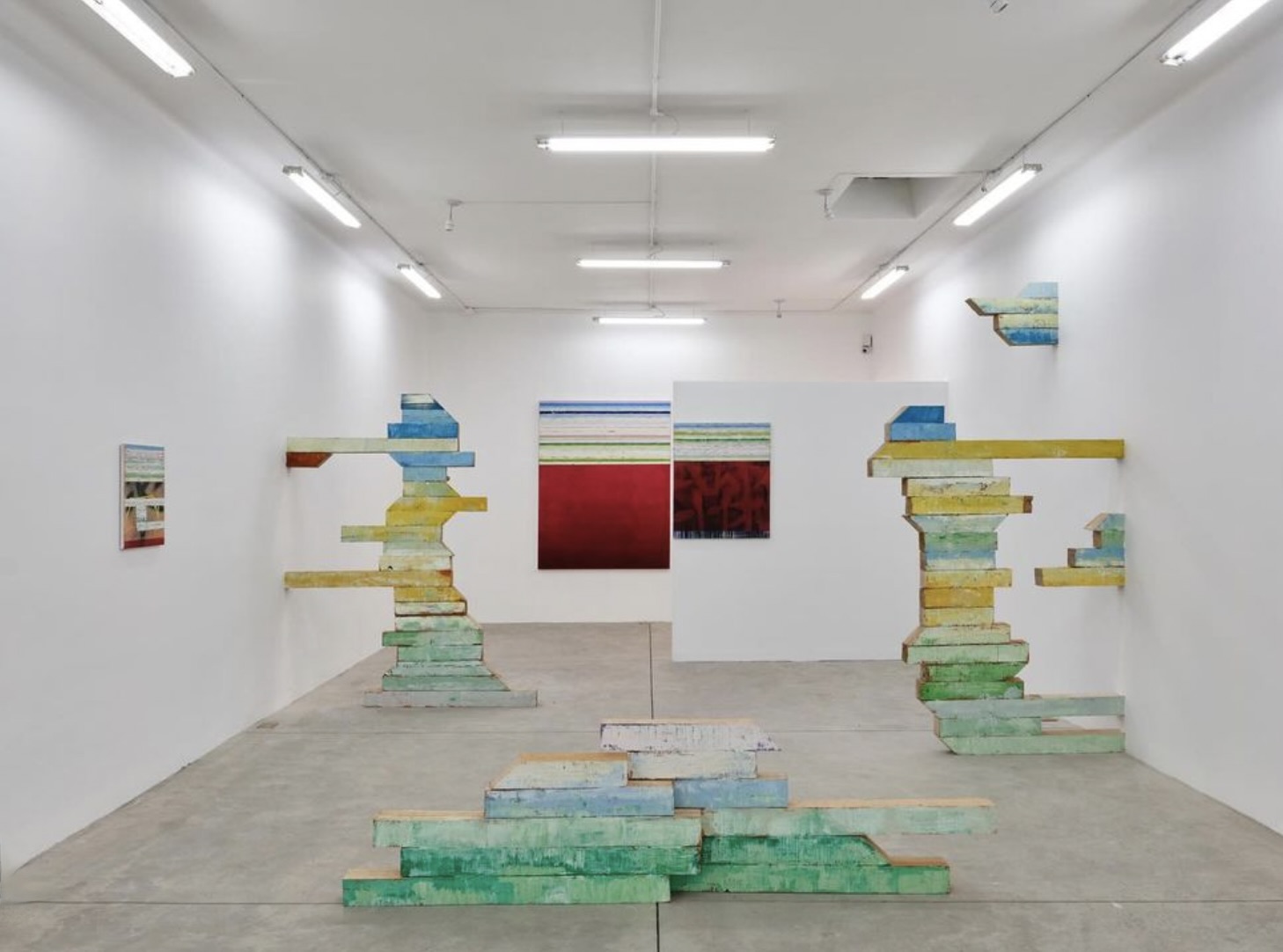
Enrique Hernández
Looking back ensures a broken neck
Exhibition
-> May 31 2024 – Sep 8 2024
Tiro al Blanco presents Looking back ensures a broken neck, an exhibition by Enrique Hernández and curated by Alejandro Cámara Frías.
We ask ourselves, on the deathbed of reborn painting, what sense does it make to continue exercising this profession of the image; at a time when digital technologies have changed the way we approach it, proliferating it. Perhaps it is precisely for this reason that painting is grotesquely valid: as a last resort, the most dense and visceral, to appropriate the images, to embrace them and let them burn us.
If you asked me about Paint, I would say it's that smell and staining. They answer me: it is giving body to a ghost, accumulating matter on a plane, it is dancing to it, not sleeping, it is time ("painting time"), it is erasing, fading, scratching. A tear in the body of time. For me it is that: conversations, through which I can peek, not without a little vertigo, to look into the eyes of history / many paintings after others.
Cross a threshold (of architecture or pain) and meet Enrique. In the center, an ashtray with a book. Nobody owns the color or the words. Always paint. For someone without practice it is plain and simple alchemy. The words are missing but they arrive later: glaze, turpentine, intoxication, turpentine. It is everywhere, except in the hands, or in a frowning and knowing gesture. In the glass and the coffee, stuck in the throat, laughing, out loud; smile. Cumulative painting, timelapse, process. Technique? Frottage: 1. n. of the visual/urban/digital experience.
Some definitions for "scratch": make or make scratches, cross out, damage a smooth surface with scratches or incisions, madden, rub, resemble, dawn, stand out, distinguish. “Getting up,” in graffiti slang, means gaining visibility on the street. Originally, it was called painting a train successfully. Now it means scratching anything, anywhere, with any form of graffiti: from a tag (a stripe) to an elaborate piece. Scratching or painting something is sometimes “getting up,” but it doesn't make you a “getting up” artist. Painting, body, city, gestures. On the abandoned property, the graffiti of the centuries. Layers and layers. Layers of paint are also called hands. Making a impression with your gaze is also painting. Look over there: those who know say that those stripes on the wall are drawing classes (free). For some reason, they insist on not looking.
Enrique Hernández uses painting as a diary, life, or writing, or better: vellum, palimpsest. How many paintings behind the painting that we end up seeing (and ends up seeing us?). Painting as practice. Resist and insist / light bubbles in the sea at night. A town of images. References upon references, hidden.
Out there/in there, the paint crackles orange. Woods on woods become strata, sedimentation. Frames that materialize a chromatic and architectural experience. Repainted ruins scratch/scrape the landscape (pure pictorial materiality). They no longer dialogue through representation, but through the frank invasion of their space. Its color palette is reminiscent of the water-lily sunrises of the last century. A red body that extrudes, with streaks and veins. Hanging structures. There is blood, hope. A certain type of nature (my garden). An urban forest is made of gestures and time. The noises / the woods / the silences.
Cloc, a slaughtered chicken. To paint is to engross the image: to become aclocarse. Onomatopoeia becomes a verb. What does a broken neck see? / red. Twist your neck, Swan. Broken paint. "Nothing to see to believe in everything." All paints, happily, do not make black. What is looking back? Confront yourself with your own image. Retrace your steps looking towards / where? Get to the bottom and look back / look back / redja. Hit the bottom and flip. Warning, advice or invitation.
And again, what is the point of painting in the Capitalocene? /delete that word and better ask/ What conclusion of the universe do I want to draw from the canvas? The most universal experience on this soil may be loss, but not grief. Dueling What is the ultimate experience of loss? You go for a walk on the street, it seems flat / your gaze crowds it. If the photograph frames, the painting cuts through, incisive // loss and viscera. From accident or error, insist on hope. We say painting without saying rapture, overflow, scar.
It remains to intoxicate the images. Miss them. Glean the drift. And see her again, with recovered eyes.
— Alejandro Cámara Frias